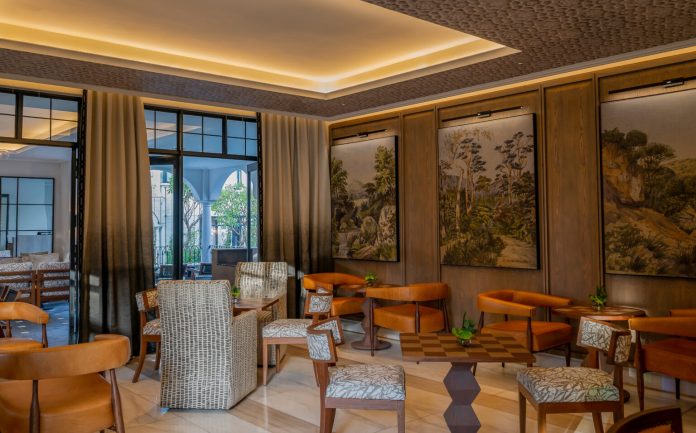South Africa’s reputation as a prime safari destination is well-established, but a new wave of luxury hospitality—led by the recently opened Park Hyatt Johannesburg—is putting its diverse culinary landscape firmly on the global map and fueling luxury culinary tourism in South Africa. This article explores how high-end establishments are redefining urban luxury while advancing South Africa food tourism and promoting sustainable gastronomy South Africa through responsible, authentic dining.
The Park Hyatt Johannesburg: A Hub for Gastronomic Discovery
Nestled in Johannesburg’s vibrant Rosebank district, the new Park Hyatt Johannesburg anchors Rosebank Johannesburg restaurants as a rising culinary quarter and serves as a beacon for South Africa food tourism. Its signature restaurant, Room 32, delivers a standout Room 32 dining experience driven by provenance, sustainability, and seasonality. Chef Karel Jacobs crafts dishes over live-fire grills, transforming indigenous ingredients into refined expressions of South Africa’s gastronomic heritage—core to sustainable gastronomy South Africa. The hotel, described as the world’s most intimate Park Hyatt with just 31 rooms, positions Room 32 as its convivial heart—turning every stay into an immersive Room 32 dining experience that encourages travelers to explore luxury culinary tourism South Africa beyond wildlife safaris.
Elevating Responsible Travel Through Luxury
Luxury properties like the Park Hyatt Johannesburg are emerging as leaders in responsible luxury travel South Africa. By embedding local sourcing into menus, they directly support farmers, foragers, and food artisans—strengthening the supply chains that underpin sustainable gastronomy South Africa. Room 32’s partnerships with growers who “understand the land, the season, and the soul of South African ingredients” show how culinary storytelling can deepen South Africa food tourism while ensuring benefits flow to local communities. This holistic model proves that sophisticated hospitality and ethics can coexist—and even accelerate luxury culinary tourism in South Africa.
Beyond the Hotel Walls: National Impact on Food Tourism
The influence of the Park Hyatt Johannesburg extends into the wider network of Rosebank Johannesburg restaurants and onward across the country. Travelers inspired by the Room 32 dining experience seek out regional tasting menus, wine regions, and indigenous food collectives—boosting South Africa food tourism ecosystems from Cape Winelands to KwaZulu-Natal markets. The hotel’s curated cellar—rooted in the nation’s terroirs—reinforces luxury culinary tourism South Africa while encouraging other operators to adopt local-first sourcing and storytelling central to responsible luxury travel South Africa.
Conclusion: Culinary Luxury With Purpose
The Park Hyatt Johannesburg stands as a catalyst for sustainable gastronomy South Africa, raising global awareness of South Africa food tourism that is rooted in culture, land, and community. By centering the Room 32 dining experience, championing local supply networks, and modeling responsible luxury travel South Africa, the property helps position the country as a leader in luxury culinary tourism South Africa—well beyond the safari circuit.




